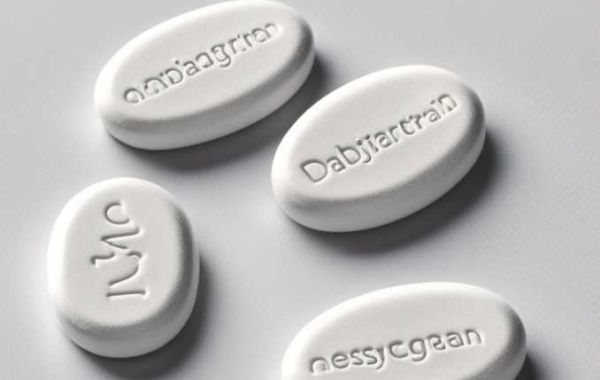In this article, we delve into the world of dabigatran etexilate mesylate pellets, exploring their mechanism of action, advantages, and potential impact on patient care.
Understanding Dabigatran Etexilate Mesylate
Dabigatran etexilate mesylate is an oral direct thrombin inhibitor, which means it works by specifically targeting thrombin, a key enzyme in the blood clotting process. Unlike traditional anticoagulants such as warfarin, dabigatran does not require routine monitoring of blood levels, offering a more convenient option for both patients and healthcare providers.
The formulation of dabigatran etexilate mesylate into pellets enhances its bioavailability and ensures a controlled release of the medication in the gastrointestinal tract. These pellets are typically small, spherical particles that contain the active drug, allowing for improved absorption and distribution within the body.
Mechanism of Action
Dabigatran etexilate mesylate exerts its anticoagulant effect by inhibiting thrombin, a central enzyme in the blood coagulation cascade. Thrombin is responsible for converting fibrinogen into fibrin, the protein that forms the basis of blood clots. By inhibiting thrombin, dabigatran prevents the formation of clots, reducing the risk of thromboembolic events.
Advantages of Dabigatran Etexilate Mesylate Pellets
- Predictable Pharmacokinetics: The use of pellets ensures consistent drug absorption, leading to predictable pharmacokinetics. This feature allows for more accurate dosing and reduces the risk of under- or over-anticoagulation.
- Convenience and Compliance: Dabigatran etexilate mesylate pellets offer a convenient dosing regimen without the need for frequent monitoring. This aspect enhances patient compliance, as individuals are more likely to adhere to a medication routine that is easy to follow.
- Reduced Drug Interactions: Compared to traditional anticoagulants, dabigatran has fewer drug interactions. This is advantageous for patients with complex medication regimens, as it reduces the likelihood of adverse effects due to interactions with other drugs.
- Rapid Onset of Action: Dabigatran etexilate mesylate has a relatively rapid onset of action, providing quick anticoagulation effects. This feature is particularly important in acute settings where immediate anticoagulation is necessary.
Clinical Considerations
While dabigatran etexilate mesylate pellets offer several advantages, clinicians must consider individual patient factors, including renal function, age, and concurrent medications. Dabigatran is primarily eliminated through the kidneys, and dosage adjustments are necessary in patients with impaired renal function.
Additionally, healthcare providers should educate patients about the importance of adherence to the prescribed dosing regimen and the potential signs of bleeding, a known side effect of anticoagulant therapy.
Conclusion
Dabigatran etexilate mesylate pellets represent a significant advancement in anticoagulation therapy, providing a convenient and effective option for patients requiring blood clot prevention or treatment. As ongoing research continues to uncover more about this novel anticoagulant, its role in clinical practice is likely to expand, offering new possibilities for improving patient outcomes in the realm of cardiovascular health.








